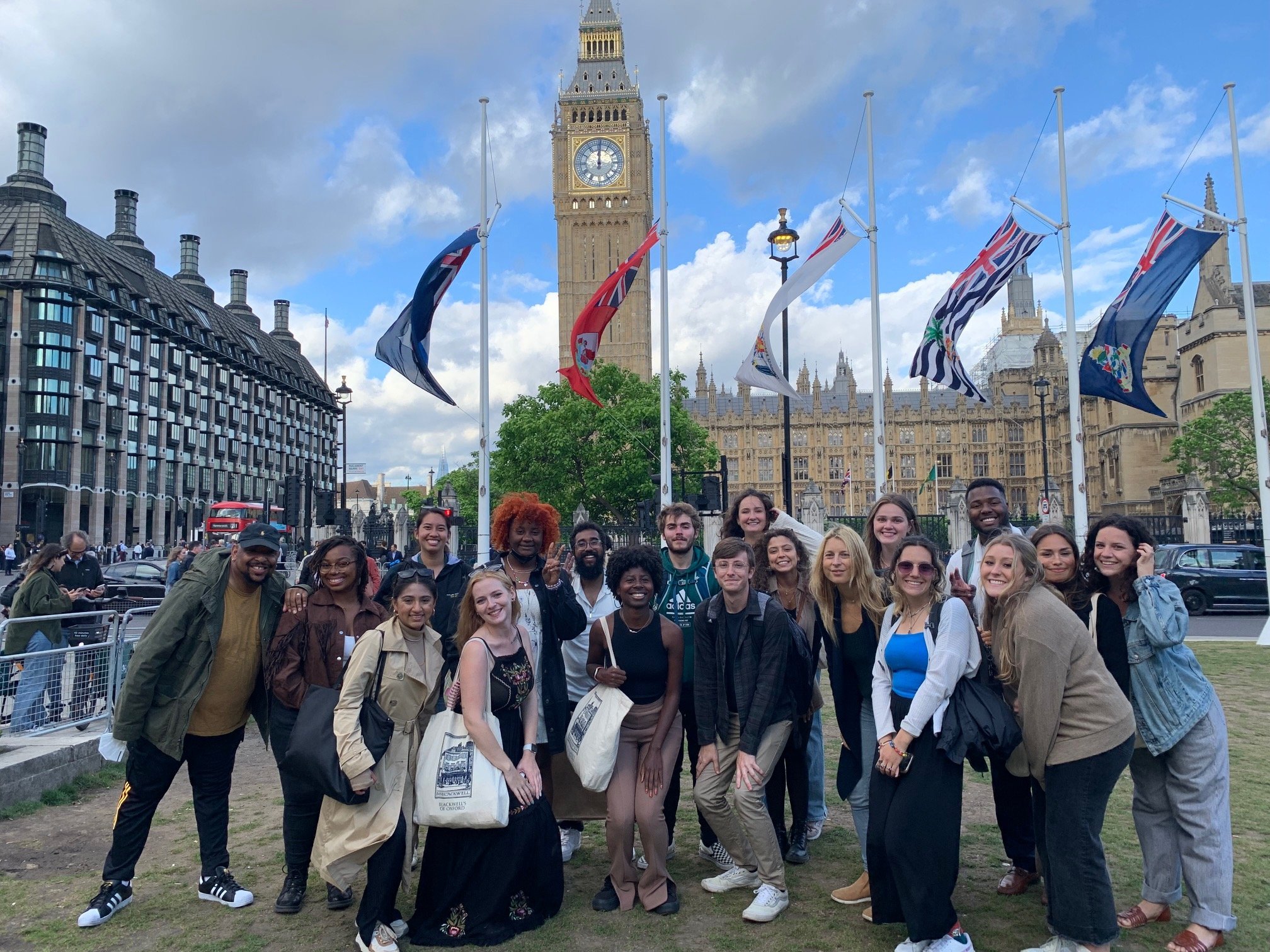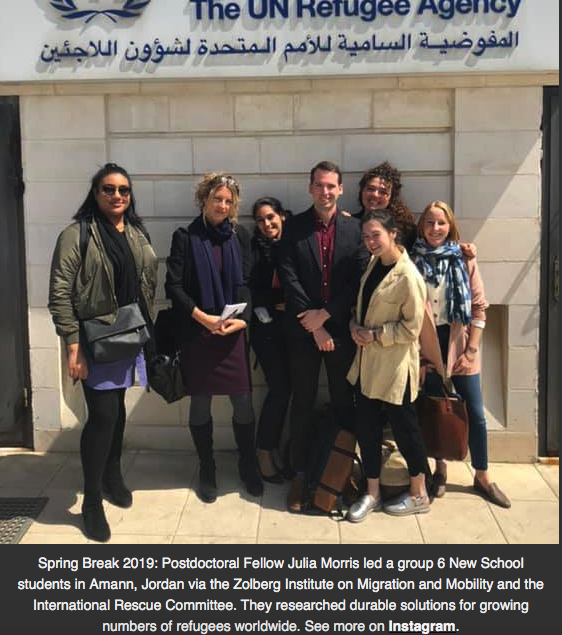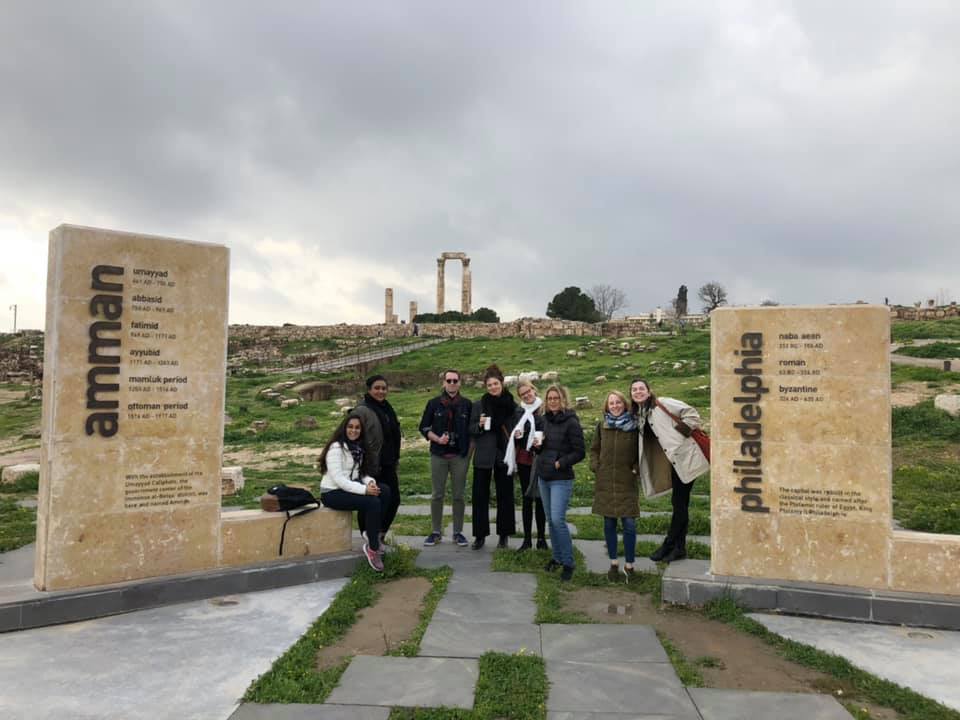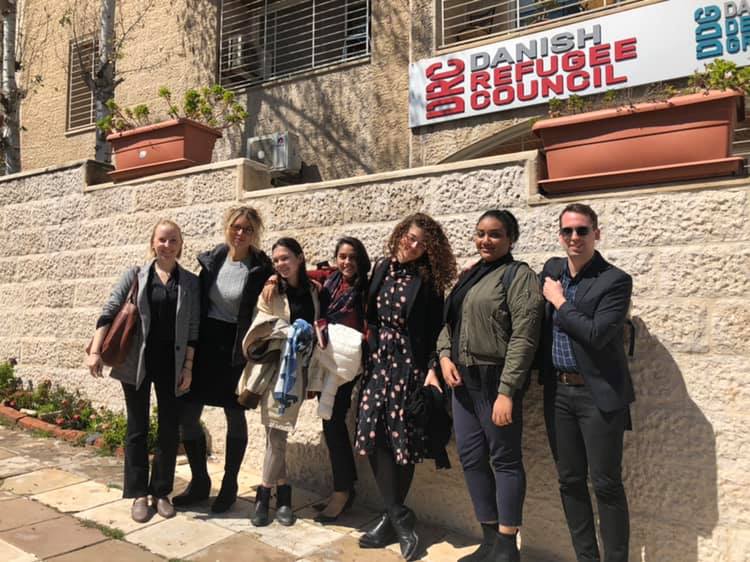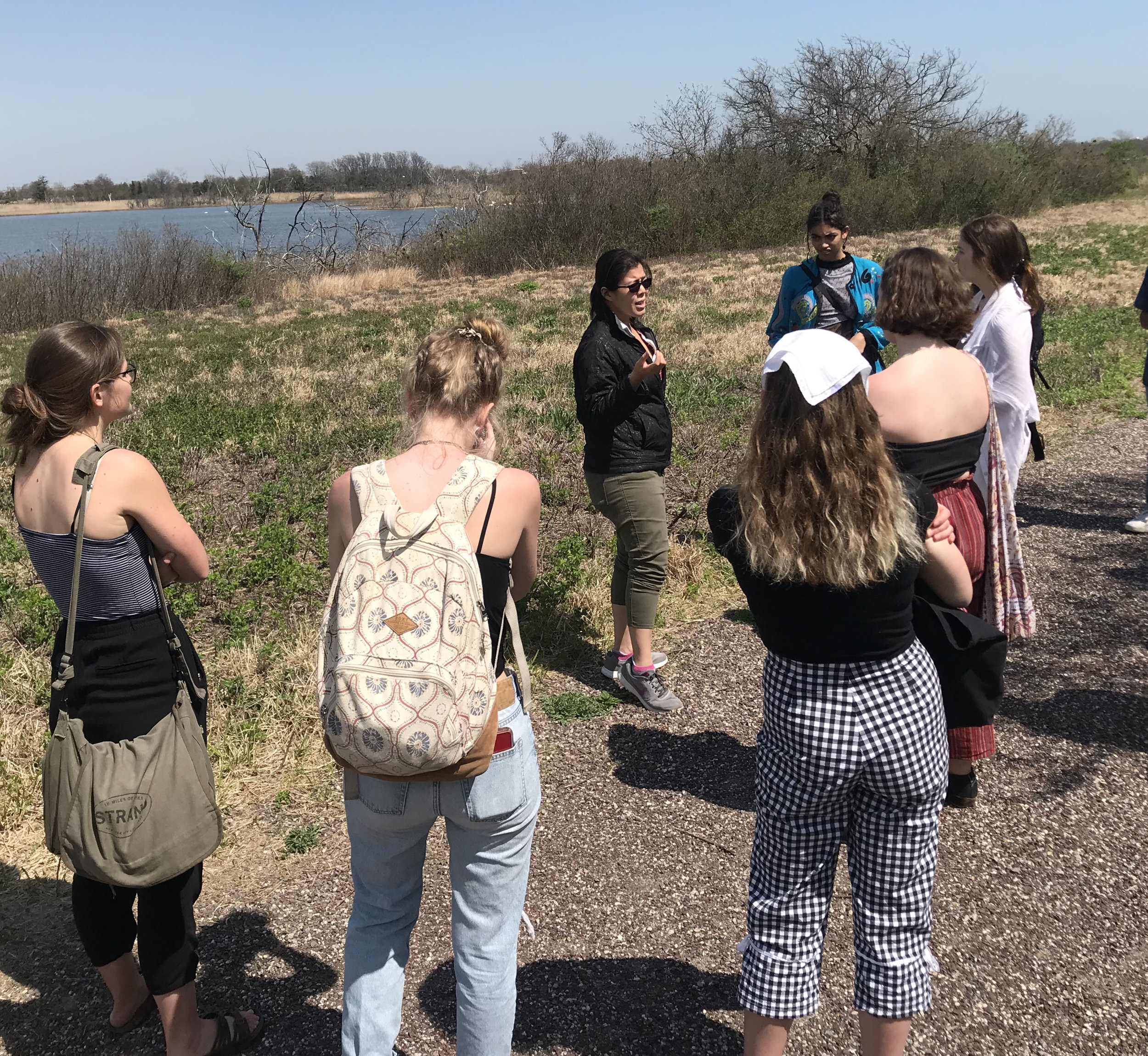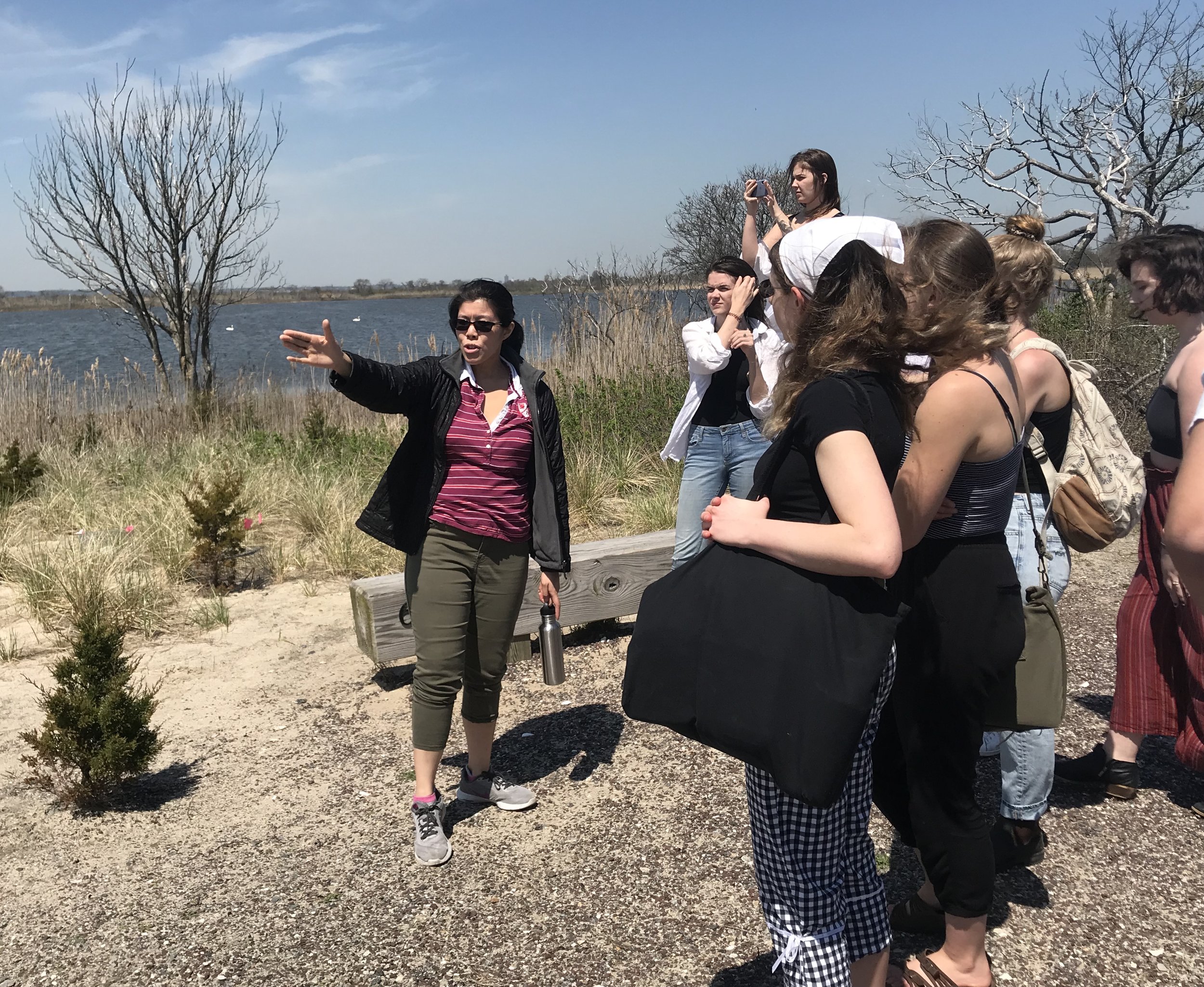As a teacher, my primary aim in engaging students is to transmit the relevance of the discipline beyond the classroom. By connecting theory to concrete examples, I teach students to learn how to think carefully about the world around them. Students merge everyday experiences with critical thinking, and are provided with the tools and knowledge they need to positively contribute to a diverse society.
At UNCW, I teach Forced Migration and Refugees (INT315 and HON120), Environmental Extractivism and the Anthropocene (INT 320), Global Protest Movements (INT 316), Senior Capstone: Adventures in Humanitarianism (INT490), Introduction to International Studies (INT 105), and Interdisciplinary Research Methods (INT 300). I lead annual Migration and Social Justice study abroads including in May 2022 and 2023 to the University of Oxford and May 2024 to Cape Town with the University of the Western Cape.
In the past, I have taught my own courses at the University of California, Berkeley and The New School, including Migration and the Environment (undergraduate, spring 2019), Durable Solutions in Jordan: A Fieldwork Practicum (graduate, spring 2019), Boundaries and Belonging (graduate, fall 2018), Migration, Politics and Power (undergraduate, spring 2018), Introduction to Social and Cultural Anthropology (undergraduate, summer 2018), and Manufacturing Landscapes (graduate, spring 2018).
Selected courses are highlighted below, as are photos from student fieldwork projects by permission.
forced migration and refugees
The twenty-first century is one of unprecedented movement in and across nation states. Faster transport, transnational and regional mobility agreements, and a proliferation of immigration and security technologies all offer the global citizen the freedom to move across territorial boundaries with ease. At the same time, while immigration controls promise freedom for some, for others it has become increasingly difficult to move elsewhere. Electoral platforms have buoyed a rise in anti-immigrant sentiments, but immigrants are also regarded as needed for their skills and willingness to take jobs not wanted by others. Within this, millions of people around the world are forced from their homes by interlocking factors including persecution, armed conflict, natural disasters, development projects and socio-economic deprivation. Given these patterns of migration and displacement, what can – and should – governments do to control or support migration in its many forms? This course deals in depth with global migration and the migration security landscape, looking at what factors shape migration flows worldwide, and how processes of human mobility are regulated in a globalized era. We focus in particular on the future of migration, including how cities integrate migration into their urban planning to help chart a path towards more inclusive, people-centered cities. Students will consider how migration shapes cities, and cities shape migration, concentrating on North Carolina as a case study as a state that welcomes a significant number of new immigrants and resettled refugees. Through ethnographic research assignments, guest lectures, and engaged discussion, this course aims to draw students into critical conversation with current debates in the migration and refugee studies fields.
global protest movements
Protest movements and populism have made waves around the world, shaping the face of global politics. Movements like #BlackLivesMatter, #MeToo, #Occupy, the Arab Spring, immigrant rights, and Extinction Rebellion all build on histories of civil rights and social movements that transcend national borders and international institutions. This course looks at the organizing strategies of these activist groups at local and international levels to consider how people have mobilized in social movements past and present, including through cultural techniques of protest such as music, graphic novels, and film. We will draw on guest lectures with social justice organizers and engaged discussion to think through the ways in which people challenge the status quo in the quest for social change.
migration and the environment
Gradual environmental change and extreme environmental events have a tremendous impact on human mobility. These forms of environmental degradation put at risk the inhabitants of coastal regions, low lying islands, and areas susceptible to drought, and can result in mass displacement. This course considers and evaluates these challenges through an interdisciplinary perspective that merges environmental and development anthropology, international development and policy. We deal in depth with patterns of social inequality and migration affected by environmental challenges, exposing the uneven distribution of climate change impacts, which can induce growth deficits and unsustainability traps. Drawing on decolonial theory and critical Indigenous studies, we think through the continued presence of colonial logics, but also consider emergent futures that place local knowledge at the center of our understanding. Students will also have the opportunity for involvement with local environmental groups, studying how ecosystems are changing in Manhattan’s boroughs. The overall aim of this course is to gain familiarity with debates that link the environment and development, advancing engaged practice inspired by the communities with which we work.
durable solutions in jordan: a fieldwork practicum
Extreme numbers of people continue to be forced to move from their home regions; the majority hosted by states neighboring conflict areas. In these contexts, refugees are often unable to access work rights, reliant on camps and welfare programs. Globally, discourses remain centered on refugees as a social and economic drain or a security threat. This course brought together faculty from The New School and humanitarian partners at the International Rescue Committee to improve areas of thinking related to humanitarianism, design, technology and resettlement. Students critically examined humanitarianism from both a theoretical and hands-on perspective, leading up to a field placement in Amman during the Spring Break. In Amman, students conducted in-depth research related to their skill-sets, supporting innovations in interventions to aid refugees and displaced people. Students also had the opportunity to apply for a long-term summer internship with the IRC’s Amman office, which provides key training for future work in NGO, policy or academic disciplines.
